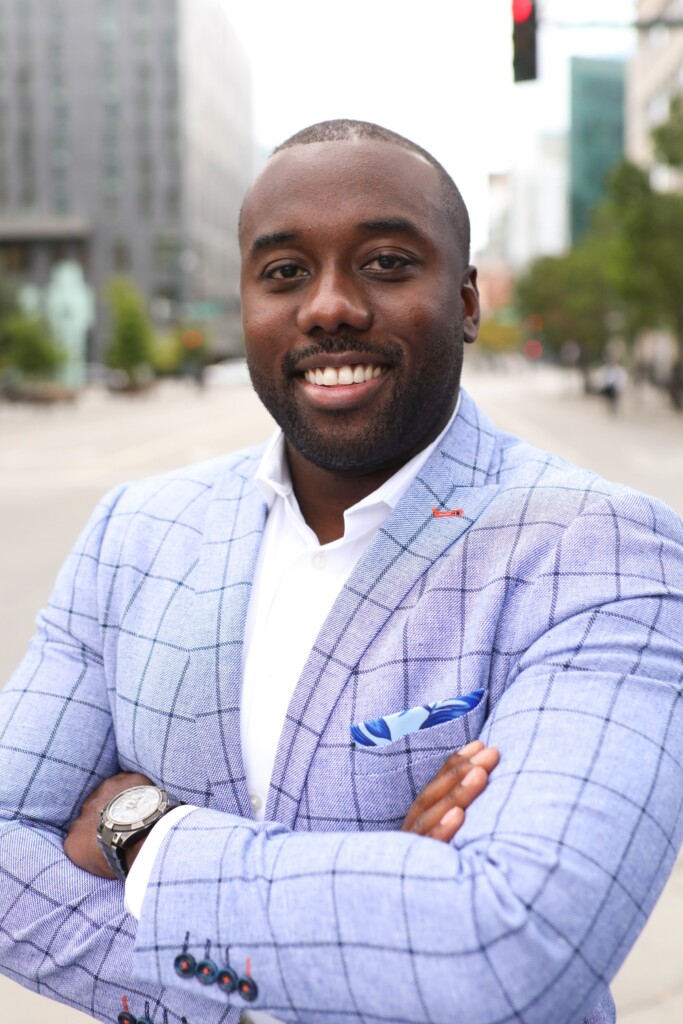Guest Column — Closing the Racial Wealth Gap With Education and Financial Planning
Derek Ansah, a Certified Financial Planner at Northwestern Mutual, explains how we can contribute to a more equitable financial world.
Derek Ansah //February 17, 2023//


Guest Column — Closing the Racial Wealth Gap With Education and Financial Planning
Derek Ansah, a Certified Financial Planner at Northwestern Mutual, explains how we can contribute to a more equitable financial world.
Derek Ansah //February 17, 2023//
As a financial advisor, I have witnessed the profound and long-lasting generational impacts of the racial wealth gap in our society, which exists due to historical factors that continue to impact the wealth, earning potential and distribution of assets in our communities. According to the Bureau of Labor Statistics, the median weekly earnings in 2022 for Black Americans was $896 and Hispanic Americans was $837, compared to $1,101 for white Americans.
READ — Do Hispanics Bear the Brunt of the Energy Crisis?
Historical factors continue to impact today’s Black communities, and because wealth and overall livelihood are so closely linked, it is important to consider the unique financial planning needs this gap has created for Black individuals — and why building generational wealth is so important.
For too long, minorities have been left behind when it comes to creating wealth, often due to systemic barriers that make it harder to access the resources and opportunities required to build intergenerational wealth.
To address this issue, we must prioritize and amplify effective strategies including education, financial literacy and access to financial planning to ensure that everyone has an equal chance to build wealth and create a better future.
Keys To Building Generational Wealth
Studies consistently show that education is strongly correlated with higher income and greater financial stability. For example, according to the Bureau of Labor Statistics, the median weekly earnings of someone with a bachelor’s degree are over 60% higher than the median earnings of someone with a high school diploma. In addition to higher wages, education also provides individuals with valuable skills, knowledge and networks that can help them navigate the complex world of finance and investment.
Achieving financial equality requires that we invest in education at all levels. This includes providing adequate funding for schools and expanding access to higher education through scholarships, grants and other forms of financial support. Innovative programs that help students from disadvantaged backgrounds succeed in furthering their education and skill set also need support and funding to continue their important work.
Like education, financial planning is foundational to creating generational wealth however, there is a lack of trust in financial institutions given the history of discriminatory practices that have targeted Black Americans.
READ — The Importance of Filling Our Community Pipelines with a Financially Literate Workforce
For instance, Black Americans have historically had less access to essential financial education and resources on important areas such as life insurance, banking, homeownership, building credit and financial coaching. However, it’s important to recognize that not all financial institutions are the same.
While there is much to do to address the broader systemic issues, each day is an opportunity to bolster individual situations. It’s time to lean into new resources and build trust with financial experts who understand your unique needs and have experience working with Black Americans. This is a person-to-person relationship that requires open communication, transparency, and willingness to work and learn together to improve financial literacy and build wealth and economic security.
The racial wealth gap is a significant challenge for Black Americans, but it’s not insurmountable. By proactively using the financial tools and resources to learn what you don’t know and relying on an experienced and trusted advisor, individuals and families can take steps to change the trajectory of the racial wealth gap toward creating a more equitable and prosperous future.
 A Denver-based financial advisor, Derek Ansah is a Certified Financial Planner ™ and serves a diverse group of clients at Northwestern Mutual in Denver, Colorado.
A Denver-based financial advisor, Derek Ansah is a Certified Financial Planner ™ and serves a diverse group of clients at Northwestern Mutual in Denver, Colorado.



























